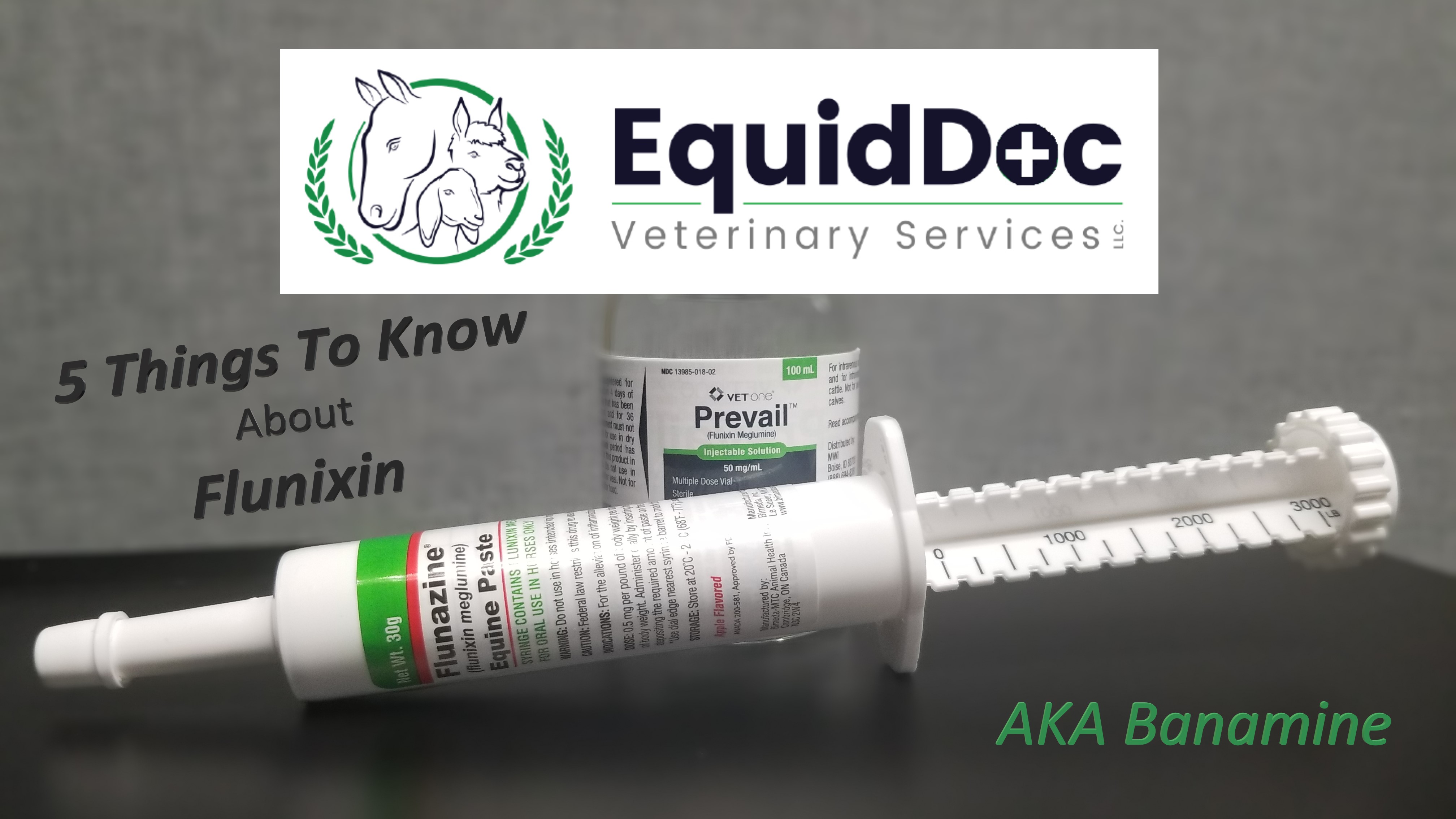Flunixin meglumine, commonly referred to by the brand name Banamine®, is a non-steroidal anti-inflammatory drug (NSAID). Other common NSAIDS in animals include phenylbutazone (Bute), meloxicam, and firocoxib (Equioxx®). Below are the 5 things your veterinarians want you to know about flunixin!
- Flunixin helps to reduce inflammation, thereby pain, and fever. Flunixin works to reduce inflammatory proteins, and by “blocking” those proteins the fever is reduced and pain is relieved. Flunixin is often recommended to reduce a fever when treating an infection, to reduce inflammation in the eyes and abdomen, and provide abdominal pain (colic pain) relief.
- Flunixin is a 12-hour drug. This means that giving more will not work better. Flunixin’s duration of action is 12 hours and should not be given more frequently than that unless directly supervised by a veterinarian. There are dangerous and life-threatening toxicities if flunixin is given at a more frequent or higher than recommended dose.
- Flunixin, like most NSAIDS, can cause GI and Kidney problems which is why we don’t want to give too much, too frequently. Flunixin can weaken the protective properties of the gastrointestinal tract, predisposing to stomach & colon ulcers. Flunixin can be dangerous to kidney function too, especially when given to a dehydrated horse or when given in combination with other medications.
- Flunixin does not cause sedation, cure colic or increase gut motility. As a pain reliever and anti-inflammatory drug some animals may become more relaxed after the medicine has taken affect, and that relaxation may cause them to appear more sedate. Flunixin can mask the symptoms of mild colic. Even if flunixin is given, the underlying cause of the colic symptoms should be investigated.
- Flunixin should not be given in the muscle, but it can be given by mouth (paste or liquid). Flunixin injectable liquid, when given in the muscle, can cause a life-threatening bacterial infection called clostridial myositis. Flunixin injectable liquid may be given by mouth to horses, just like the paste formulation. Goats, sheep, alpacas & llamas may receive flunixin injection under the skin only, not in the muscle.
Please consult with your EquidDoc veterinarians before giving any medication, especially an NSAID such as Banamine® (flunixin meglumine) or Bute (phenylbutazone).


